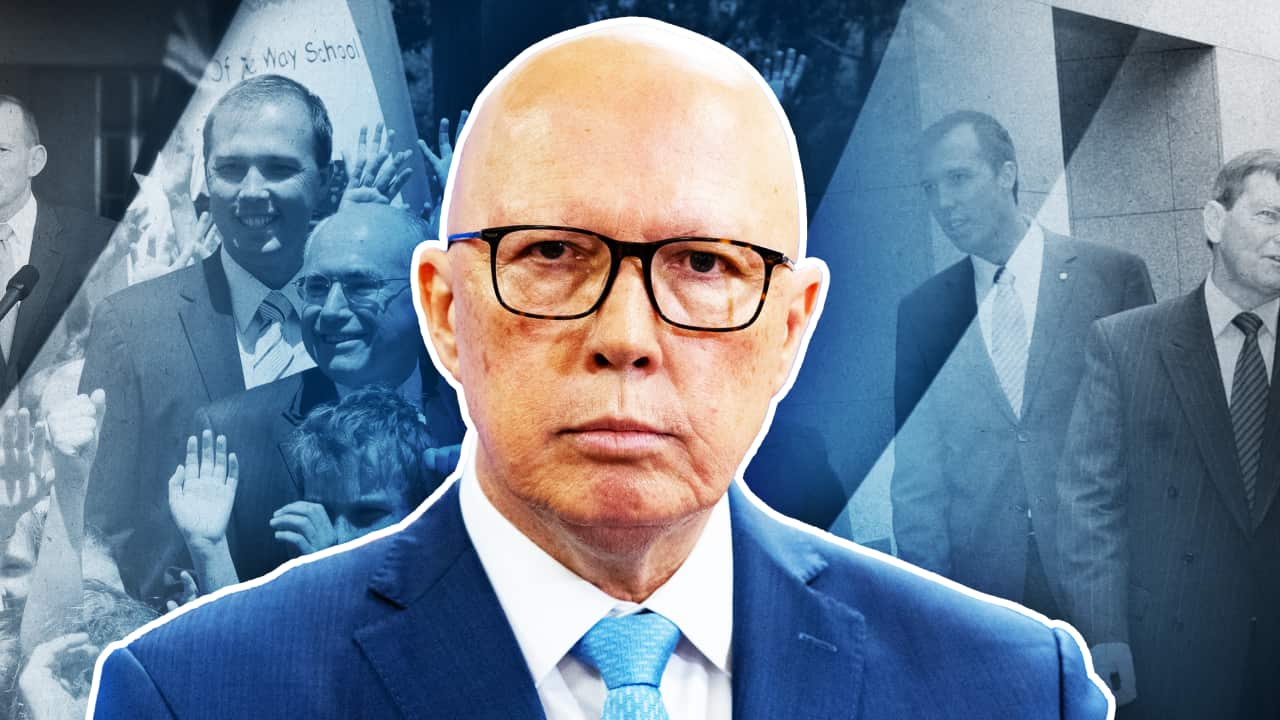Sussan Ley will become Opposition leader temporarily as contenders emerge for Peter Dutton's post.
Dutton lost his outer-Brisbane seat of Dickson — which he had held for 24 years — to , making him the first opposition leader to lose their seat in a federal election. The result ended his leadership of the Liberal Party.
SBS News has been told that Sussan Ley, the deputy leader of the Liberal Party, is now considered the acting leader of the Opposition.
"Last night was a very difficult night for the Liberal Party and today we reflect on these results with humility," she said in a statement.
"As per our party rules following an election defeat, the Liberal party room will meet in order to elect a leader of the Opposition and deputy leader of the Opposition. These positions will be declared vacant at this meeting.
"I have consulted with our party's senior leadership and it is clear that there are several seats where preferential counting must continue before this meeting can take place."

Following Peter Dutton's eviction from parliament, Sussan Ley is now acting leader of the Opposition. Source: AAP / Mick Tsikas
How will the Liberals choose the party leader?
Each party has its own method for choosing its leader. For the Liberals, this process is quite simple: a majority vote within the party room will determine who leads the party.
"The party room is where the members of the Liberal party who've been elected to federal parliament will meet, and one or more people will nominate for the leadership position," Rodney Smith, a professor of Australian politics at the University of Sydney, told SBS News.
"If one nominates for the leadership position and is unopposed, they become the leader," he said.
"[The candidate] has to be somebody who's been elected as a Liberal candidate, who is successful and has a seat in the House of Representatives."
If there are two or more candidates, the process gets a little bit more complicated.
"Then the members of the parliamentary party room will vote until one of those candidates has a majority vote," Smith explained.
"They'll have a first round of voting, and then the least popular candidate will be eliminated until they arrive at a candidate who has a majority."
In this case, the party room includes members of the House of Representatives and the Senate who identify as Liberals, including Liberal Nationals.
In Queensland, the two parties merged to form the Liberal National Party of Queensland in 2008, while in the Northern Territory they amalgamated as the Country Liberal Party in 1974.
How long will the process take?
Party members may have to wait until the final election results for all seats are announced to choose their new leader.
"It would be only fair if they wait, a minimum of a week to possibly two weeks, to see for sure who members of parliament from their party are going to be," Graeme Orr, a professor and an expert on the law of politics at the University of Queensland, told SBS News.
There is also another scenario, in which the process can run much quicker: the party coming up with only one candidate.
"In which case, the party room would simply endorse that candidate. And if there was maybe one seat still undecided ... they might go ahead with that. But I think they will wait until the return for the election so they know how many members they actually have," Smith said.
Who are the candidates?
Although no-one has officially declared their candidacy, there is speculation that candidates could include Opposition Treasury spokesperson Angus Taylor, deputy leader Ley, defence spokesperson Andrew Hastie, and immigration spokesperson Dan Tehan.
Considering the election results, Orr believes the contest will be "a battle for the soul of the Liberal party".
"There's going to be a lot of soul searching and infighting, not just between the traditional small-l liberals versus conservatives."
He said there will be some "who'll be trying to pull the Liberal Party in a more populist nationalist approach".

(left to right) Angus Taylor, Sussan Ley, Andrew Hastie and Dan Tehan are among those being considered as potential figures to replace Peter Dutton, but none have officially declared themselves as candidates. Source: AAP, Getty
What's next for Peter Dutton?
While the Liberal Party faces an internal battle, Dutton will now be contemplating a life outside politics — at least for the immediate future.
In his, the Opposition leader said: "Twenty-four years is a long time to be in public life, and it has been an amazing honour ... I love this country, and I've fought hard for it."
He also noted being defence minister as a career highlight and described serving as the party leader as "the greatest honour".
Smith does not think Dutton will "try to return to the parliament".
"That's my sense from what he said last night. I don't know his intentions exactly, but I suspect he will not return to parliamentary politics ...
"He will find some kind of alternative employment for the rest of his working life. That will be his future.
"I think particularly people within the Liberal and National parties would look on his years of public service and, if there are appropriate positions in the public sector over which they have control, they might ask him if he was interested in serving in one of those."
Visit the to access articles, podcasts and videos from SBS News, NITV and our teams covering more than 60 languages.


